October 7, 2024 | 09:58 GMT +7
October 7, 2024 | 09:58 GMT +7
Hotline: 0913.378.918
October 7, 2024 | 09:58 GMT +7
Hotline: 0913.378.918
According to the Vietnam Union of Science and Technology Associations (VUSTA) survey and analysis, 5,000 ha of the over 20,000 ha of rice cultivation area in Quang Tri province are eligible for organic rice production. This production is concentrated in certain districts, including Trieu Phong, Hai Long, and Gio Linh. Nevertheless, the soil and water resources required for organic cultivation must be "detoxified" and supplemented with beneficial microbiomes.
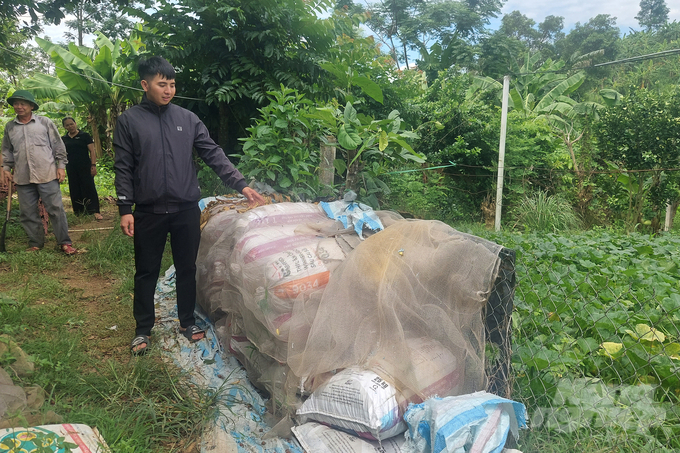
Organic fertilizer of Quang Tri Trading Company is produced from manure purchased from farms and small livestock households. Photo: Vo Dung.
"The soil and water detoxification process will be executed promptly. Nevertheless, it is important to note that the entire cultivation process should be conducted using organic fertilizer and biological pesticides in organic agricultural production. This is a significant challenge for farmers as they become acquainted with inorganic fertilizer and chemical pesticides to reduce labor and increase immediate yields," stated Ho Xuan Hieu, Chairman of the Board of Directors of Quang Tri General Trading Company (Quang Tri Trading Company).
Quang Tri Trading Company demands that cassava and arrowroot producers utilize organic fertilizer in addition to rice. Consequently, the 'trapping' of indigious microorganisms must be implemented in a variety of environments, including plains, coastal regions, and mountainous regions. In order to facilitate the production of organic fertilizer, each plant in distinct regions necessitates a specific indigious microorganism for replication.
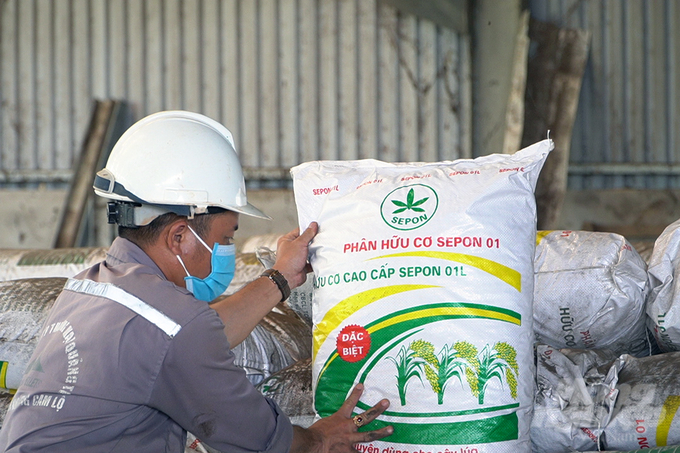
With the current capacity of 600 tons/year, Quang Tri Trading Company is only enough to provide organic fertilizer to people in the linked chain. Photo: Vo Dung.
In 2021, Quang Tri Trading Company successfully executed the project "Research and application of indigenous microorganisms to treat cow and chicken manure into specialized organic fertilizers for rice plants," which was initiated by the desire to supply an adequate amount of organic fertilizer to meet production demands within its linking chain. The research procedure led to the development of two microorganism strains: one for the plains and another for the mountainous region.
The most effective outcome was achieved with the use of organic fertilizer on rice plants in the subsequent six investigations. Quang Tri Trading Company generates an average of 600 tons of organic fertilizer for paddy plants each year. The majority of the material sources for the production are sourced from poultry and cow farms in the area. Nevertheless, the Company's annual supply of fertilizer is adequate for the 200 hectares of organic rice and VietGAP rice that the Company collaborates with producers to cultivate.
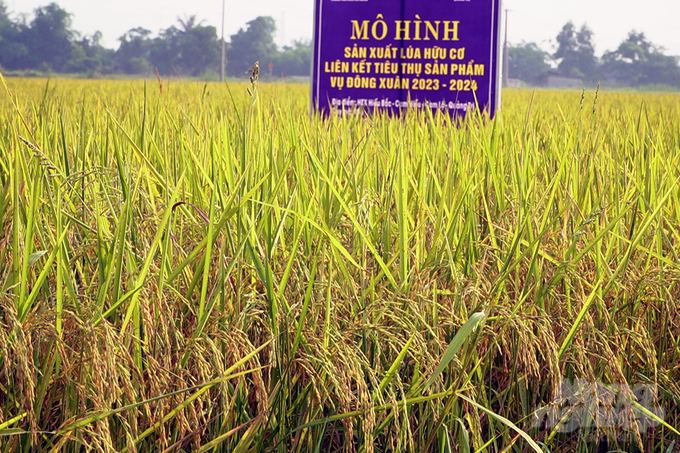
Organic fertilizer of Quang Tri Trading Company has contributed to creating the Sepon Organic Rice brand. Photo: Vo Dung.
Despite the abundance of material sources used to produce current organic fertilizer, the demand for organic fertilizer in localities is substantial. The agricultural by-products, such as straws, on fields would be transformed into charcoal after each harvest if they were solely reliant on self-production. The handle of discharge would be perplexing to the hundreds or thousands of small agricultural homes and livestock farming households in the area.
Mr. Vo Trung Tuyen's poultry farm in Minh Chinh village, Cam Chinh commune, Cam Lo district (Quang Tri) raises approximately 20,000 chickens annually. Mr. Tuyen acquires rice husks for processing and employs microorganisms to establish biological bedding before to each breeding season to mitigate environmental pollution in livestock husbandry. All biological bedding is collected and composted to produce fertilizer for fruit trees in the garden after each batch is sold. This fertilizer is then sold in tiny quantities. Although some labor costs are mitigated by the income generated from the fertilizer sale, the process is both time-consuming and expensive.
When Quang Tri Trading Company announced its intention to construct an organic fertilizer factory, Mr. Tuyen was experiencing difficulty in identifying a solution. This implies that Quang Tri Trading Company will acquire all of the chicken manure from Mr. Tuyen's property, which will be processed into bedding.
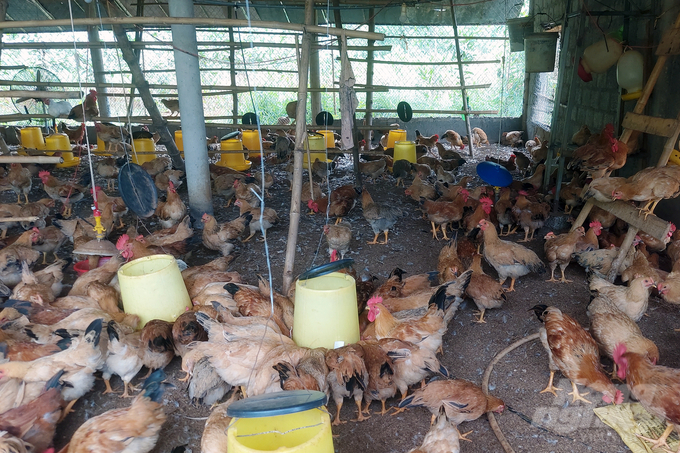
The target audience in the organic fertilizer production plan of Quang Tri Trading Company is small farms and livestock households. Photo: Vo Dung.
"Waste management is the most significant obstacle in livestock farming. I am contemplating the possibility of expanding my farm; however, the manure that is generated is only partially utilized and sold in limited quantities, which is both time-consuming and does not generate a high price”, Mr. Tuyen expressed his enthusiasm for the possibility of receiving bedding and purchasing poultry manure in bulk.
In the interim, Quang Tri Trading Company has been receiving manure from Mr. Le Thanh Trung, a poultry farmer in Duong Dai Thu village, Trieu Thuan commune (Trieu Phong district, Quang Tri), for the past two years. Mr. Trung believes that this is the most effective approach to address the environmental pollution concerns of livestock producers.
"Each year, I only supply Quang Tri Trading Company with about 10 tons of chicken manure. However, I believe that small-scale livestock farming currently faces significant pressure regarding waste management. If every household had a solution to this problem, environmental pollution in rural areas would be significantly improved," Mr. Trung explained.
This is likely the reason why Quang Tri Trading Company is assuming the lead in the production of organic fertilizers in the near future.
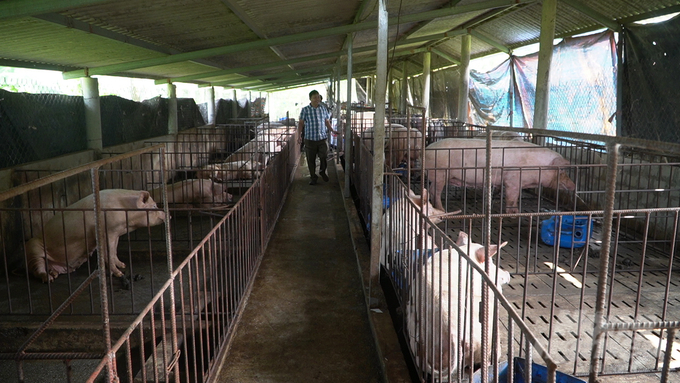
Organic or organic livestock farms and households will be very convenient to provide manure sources to produce organic fertilizer. Photo: Vo Dung.
"Our current production of organic fertilizers is primarily intended for self-supply within our supply chains with farmers, and it is insufficient to meet the market demand. We are a business that seeks profit; however, what could be more meaningful than resolving the concerns of livestock farmers and establishing a circular production system in agriculture that reduces environmental pollution?", Mr. Ho Xuan Hieu, Chairman of the Board of Directors of Quang Tri Trading Company, disclosed this information.
The organic fertilizer plant initiative of the company is intended for small-scale livestock farmers, as per Mr. Hieu. The company will employ machinery to collect and shred straw, which will be processed with rice husks and microorganisms to produce biological bedding for livestock producers. The company will collect all of this waste after one agricultural cycle for the purpose of processing and producing organic fertilizer. A solution to livestock pollution in rural areas will be provided by this, which will address both input and output for small-scale livestock households.
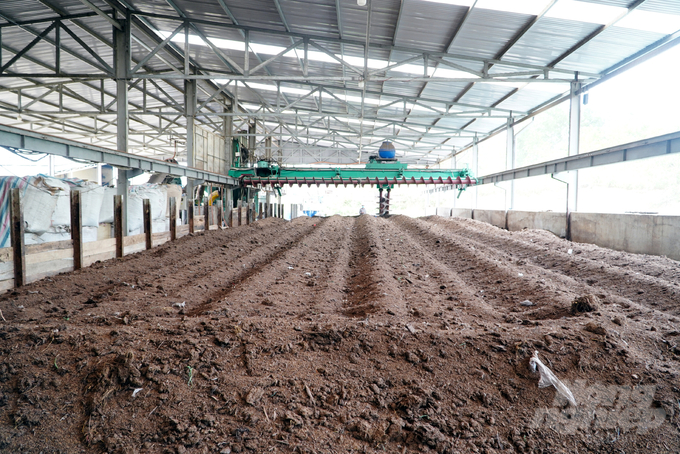
The construction of an organic fertilizer factory by Quang Tri Trading Company will solve the current concern of environmental pollution in livestock farming. Photo: Vo Dung.
"In order to guarantee a proactive supply of raw materials for the organic fertilizer plant, we have implemented surveys." By collaborating with us, livestock households and farms will eliminate the necessity to invest time and money in cleaning their barns, as they will be able to utilize the biological bedding exclusively. It would be even more advantageous if they engaged in organic cultivation. This will establish the necessary conditions to encourage the production of organic agricultural products, which are currently in trend", Mr. Ho Xuan Hieu elaborated.
Translated by Linh Linh
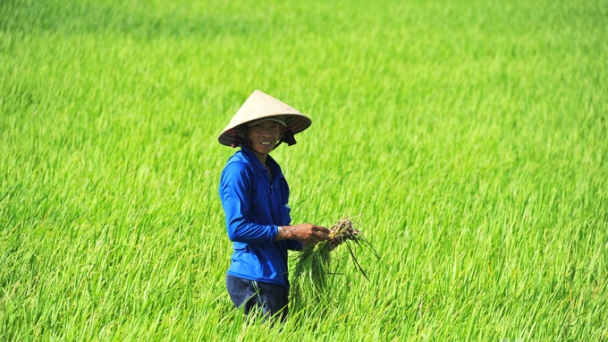
(VAN) Low-emissions rice production becomes a mandatory requirement of international integration, an important factor in the production of export goods.
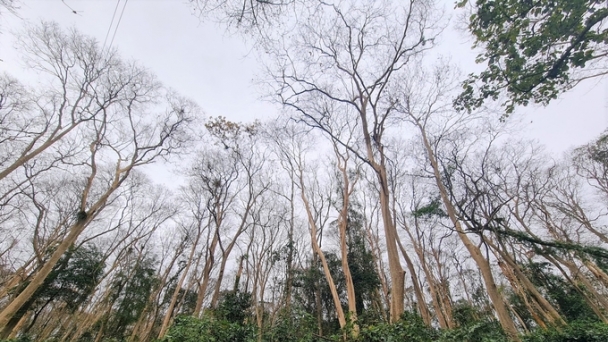
(VAN) Possessing the largest forest area in the country and an extensive agricultural land fund is a solid foundation for Nghe An to participate in the potential carbon playground.
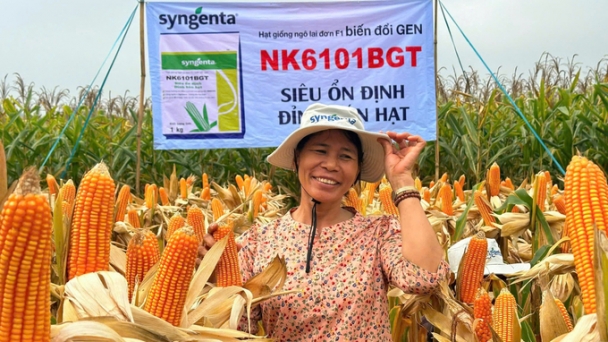
(VAN) Over the 10 years since genetically modified corn was recognized in Vietnam, Dr. Dinh Cong Chinh (Department of Crop Production, MARD) believes that it is necessary to reassess and improve annual corn productivity.
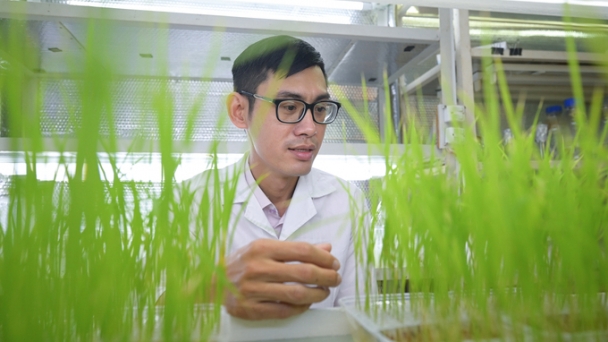
(VAN) The Agricultural Genetics Institute has made significant strides in researching rice varieties resistant to bacterial leaf blight, particularly focusing on the TBR225 and Bac Thom 7 strains.
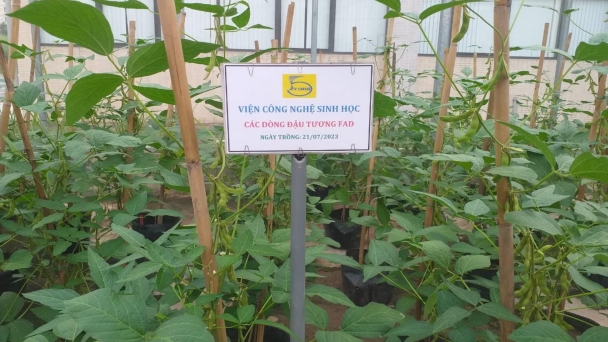
(VAN) Researchers at the Institute of Biotechnology have successfully developed and mastered genome editing technology using the CRISPR/Cas system.
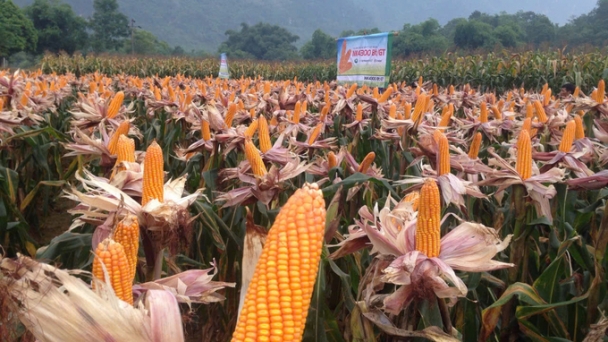
(VAN) The Deputy Director of the Department of Science, Technology, and Environment addressed several concerns regarding biotechnology, as well as the current state of affairs and potential solutions in Vietnam.
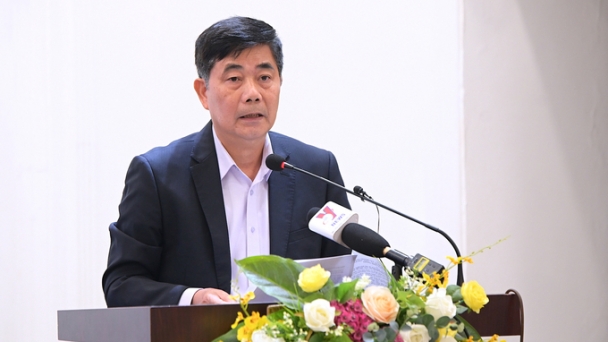
(VAN) Dr. Cao Duc Phat, Chairman of the BoD at the International Rice Research Institute, believes that Vietnam’s biotechnology sector is falling behind the global stage, with the main reason being a lack of awareness.